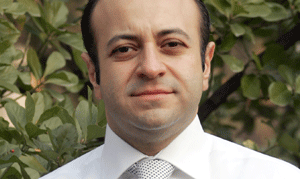European Turkey: Diversity in Unity
- Written by Admin TOA
- Published in Politicians

By Egemen Bağış*
Anatolia, from the pre-historic period until the present time, evolved into an area enriched with a cultural legacy inherited from many different civilizations. This cultural heritage has been preserved until the present time, making good use of shared experiences and utilizing what had been learned or accumulated. In this way, Anatolia has served not only as a geographic bridge, connecting Asia to Europe or the East to the West, but also as a perception linking the past with the present and introducing Eastern thought to the Western way of thinking.
The Ottoman Empire and modern Turkey also served as a cradle for many religions, such as Islam, Christianity and Judaism, which were allowed to co-exist together. During the Ottoman era, the regulations put into practice by Sultan Mehmet the Conqueror and many others clearly aimed at protecting the cultural diversity and the existence of the different belief systems and communities, as well as establishing appropriate circumstances to guarantee a decent life for all citizens. As a result, different religious groups that suffered oppression at home did not hesitate to migrate to take shelter in this peaceful land. Modern and secular Turkey has followed this Ottoman path of tolerance and co-existence.
THE JEWISH DIASPORA IS OUR PARTNER
The culture of "living together" has gained further significance in today's globalized world, in particular the European Union integration process. Jews in the Ottoman Empire and Turkey enjoyed and still enjoy all rights and appreciate their status in our country. This also contributes to the positive image of Turkey as a country respecting differences and religious minorities, which is one of the fundamental values of the EU.
In fact, around 300.000 American Jews of Ottoman origin contributed to building a bridge of friendship between the Ottoman Empire and the USA in the 19th century. Turkey's positive approach to Jews and the Jewish community, as well as Israel, is reflected in the attitudes of the Jewish Diaspora not only in the USA but also in European countries towards Turkey. We consider the Jewish Diaspora as our natural partners to better communicate Turkey's tradition and culture of tolerance and "diversity in unity" to the rest of Europe and the world.
In this respect, progress in Turkey's EU accession will mean more stability and better relations in the region and beyond. Turkey's full membership in the EU will contribute to a better understanding of the Middle East issue and the concerns of all sides, including Israel. Turkey in the EU will also increase the credibility of the Union vis a vis the region, making the EU a real global actor to bring balanced and viable solutions to the problems of the region.
WHO IS EGEMEN BAĞIŞ?
Egemen Bağış was first elected to Parliament in 2002 as a deputy for İstanbul. He was appointed Minister for EU Affairs and Chief Negotiator on January 2009 and has been working at Turkey’s full membership negotiations since then.
Bağış was the party's Vice Chairman in charge of Foreign Affairs and as a Vice Chairman, he was a member of AK Party's Central Executive Committee, the party's highest body, until 2009.
Bağış was the party's contact person for international relations and diplomacy. He directed and coordinated the party's national and international network and local branches on foreign policy matters. He also coordinated the flow of key global developments to the party leadership.
* Egemen Bağış, Minister for EU Affairs and Chief Negotiator of Turkey
Last modified onSaturday, 06 May 2017 10:07
Tagged under
Latest from Admin TOA
- The Young Star of the Gastronomy World Is The New Owner of Samdan
- From Dream to Reality, from Muş to Illinois: Zellano Home, the Largest Furniture Store Under One Roof in the USA!
- 300 migrants to be housed at shuttered Catholic church on Northwest Side in Chicago
- Turkish Philanthropy Funds Hosts 2024 Innovation and Social Impact Summit
- Turkish Stand-Up Sensation Hasan Can Kaya Embarks on U.S. Tour with Art Evi Production, in212 Production, and TAAS New York
